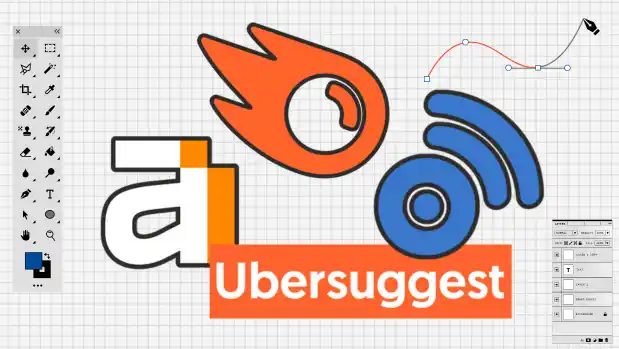Balancing Creativity and Data in a Digital Marketing Career

Balancing Creativity and Data in Digital Marketing for Career Success is an exciting field where creativity and data come together to drive impactful campaigns. A successful digital marketer knows how to craft compelling content while relying on data to measure and refine strategies. Balancing creativity and data is essential for those aiming to thrive in the industry. So, let’s explore how creativity and data complement each other and how you can master both to excel in your digital marketing career.
The Role of Creativity in Digital Marketing for Career Success
Creativity is the heart of digital marketing, involving crafting stories, visuals, and messages that resonate with your audience. Furthermore, creativity makes a brand memorable and fosters emotional connections in digital marketing, contributing to career success.
Key Areas Where Creativity Shines:
Content Creation: Writing blogs, social media posts, and email campaigns requires a flair for storytelling.
Visual Design: Eye catching graphics, videos, and infographics can grab attention and boost engagement.
Campaign Ideation: Innovative ideas for promotions or contests can set a brand apart.
Creativity is not just about being artistic; it’s about understanding your audience’s needs and crafting messages that inspire action.
The Role of Data in Digital Marketing
for Career Success
Data, on the other hand, is the brain of digital marketing. It offers information on market trends, campaign effectiveness, and consumer behavior. A data-driven approach ensures that creative ideas are grounded in reality and aligned with business goals.
Key Areas Where Data Leads the Way: Digital Marketing for Career Success
Audience Insights for Digital Marketing Success:
Understanding demographics, preferences, and behaviors through analytics.
Performance Metrics for Digital Marketing Career Success:
Measuring the success of campaigns using metrics like click-through rates (CTR) and conversion rates.
A/B Testing for Digital Marketing Success:
Experimenting with different creative elements to see what works best.
Data removes guesswork and helps marketers make informed decisions that drive results.
Why Balancing Creativity and Data Matters in Digital Marketing
Neither creativity nor data alone can guarantee success. Creativity without data risks being ineffective, while data without creativity leads to uninspiring campaigns. A balanced approach:
Enhances Engagement: Creative ideas capture attention, while data ensures the content is targeted to the right audience.
Improves ROI: Data helps allocate resources effectively, and creativity ensures those resources are used in impactful ways.
Encourages Innovation: Analyzing data can spark new creative ideas, and creativity can inspire new ways to use data.
How to Balance Creativity and Data in Digital Marketing
1. Use Data to Fuel Creativity
Start with data to understand your audience. What are their preferences? What problems are they trying to solve? These insights can guide your creative process.
Example: If data shows your audience engages more with video content, focus on creating videos tailored to their interests.
2. Test Creative Ideas with Data
Don’t just guess what will work test it! Use A/B testing to try different headlines, visuals, or call-to-actions (CTAs). Let the data decide which resonates best.
Example: Run two versions of an ad with different visuals and track which one generates more clicks.
3. Embrace Tools that Blend Creativity and Data
Leverage tools that help you combine both aspects. Platforms like Canva and Adobe Spark offer creative freedom, while Google Analytics and SEMrush provide actionable insights.
4. Involve Team Collaboration
Balancing creativity and data is both an art and a science. Moreover, by leveraging the strengths of each, you can create campaigns that not only capture attention but also drive measurable results. Furthermore, whether you’re brainstorming an innovative idea or analyzing campaign performance, remember that creativity and data are partners, not rivals. Consequently, with this balance, you can thrive in the ever-evolving world of digital marketing.
5. Keep Learning and Adapting
Digital marketing is constantly evolving and stay updated on new tools, techniques, and trends to maintain the balance between creativity and data.
Challenges in Balancing Creativity and Data
Balancing creativity and data isn’t always easy and some common challenges include:
Data Overload: With so much data available, it can be overwhelming to decide what to focus on.
Solution: Prioritize key metrics aligned with your goals.
Creative Blocks: Sometimes, sticking to data might stifle creative freedom.
Solution: Use data as a guide, not a restriction. Allow room for experimentation.
Conflict Between Teams: Creatives and data analysts may not always see eye-to-eye.
Solution: Foster collaboration and emphasize the shared goal of campaign success.
Career Benefits of Mastering Both
Professionals who excel at balancing creativity and data are highly valued in the digital marketing industry and by mastering both, you can:
Become a Versatile Marketer: Handle diverse roles, from campaign ideation to performance analysis.
Drive Better Results: Create campaigns that are both engaging and effective.
Stand Out to Employers: Demonstrating proficiency in both areas makes you a well-rounded candidate.
Real-World Example
Consider Netflix. Their recommendation engine relies heavily on data to understand viewer preferences. Meanwhile, their creative teams craft engaging content like trailers and artwork that draw people in. Thus, this balance is a big reason for their success. Not only does their data-driven approach ensure that they meet viewer needs, but their creative efforts make their content appealing and memorable. Furthermore, by combining data and creativity, Netflix is able to deliver a personalized and enjoyable experience for its users. Therefore, mastering both creativity and data can lead to significant success in the digital marketing world.
Conclusion
Balancing creativity and data is both an art and a science. Moreover, by leveraging the strengths of each, you can create campaigns that not only capture attention but also drive measurable results. Furthermore, whether you’re brainstorming an innovative idea or analyzing campaign performance, remember that creativity and data are partners, not rivals. Consequently, with this balance, you can thrive in the ever-evolving world of digital marketing.




















